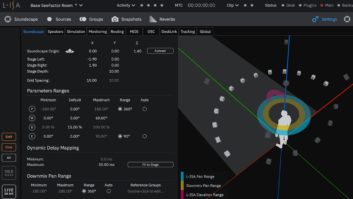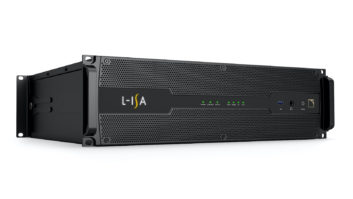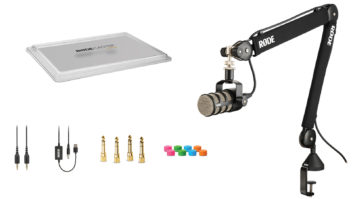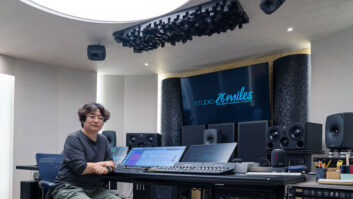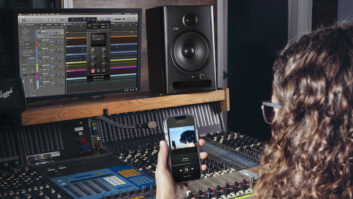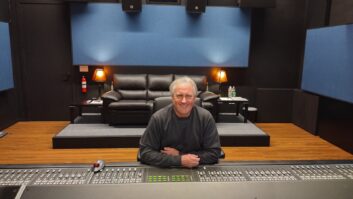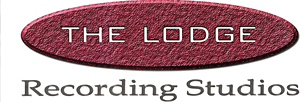
Editor’s Note: We kick off a new online series written by and for mid-level studio owners. On a monthly basis, Studio Unknown owner Kevin Hill and creative director Lisa Horan will be calling around the country and bringing their own expertise to the issues that matter most to a successful studio life. Let’s face it, the middle has been hit hard in the economic downturn…but it’s also the middle that is most likely to come roaring back. In this first installment, they talk about interns…
Okay. We’ll admit it. The interns we “hire” are definitely not exempt from performing mundane tasks. Dishes in the sink? Get the intern. Bathroom needs cleaning? Get the intern. Short on toner? Well, you get the idea. We all have to pay our dues, right? But as a small studio, we’re doing ourselves a disservice in more ways than one if we strictly treat the student interns as domestic assistants. After all, they are the engineers of tomorrow, so it’s our responsibility to provide them with opportunities to obtain real-world, professional studio experience—and that goes well beyond doing mixes and dubs. The most valuable interns are those who aren’t merely technology-savvy, but are good with people, have a hunger for learning, and are ready to take advantage of the opportunities that come their way. You might even be surprised at the opportunities the really good ones present.
Personality Pays
So the intern that you just “hired” absolutely rocks on Pro Tools. Great! But how is he with clients? This is an equally important—and sometimes even more-critical issue. The interns who work at The Lodge Recording Studios in Indianapolis, which hosts both publishing clients and national touring acts like Alanis Morissette, Pink and Shaggy, need a combination of skill and a personable disposition. “Our interns often run interference for our engineers and have to interact with clients regularly, so it’s really important that they have an easy-going personality that makes clients feel comfortable and feel like they are being catered to,” explains Operations Manager Andy Symons. “We can’t have a client feel like they’re dealing with some apathetic stranger.”

That is precisely why Perry Geyer, owner of Boston and New York City’s Cybersound, where such acts as the Jonas Brothers, New Kids on the Block and Robin Thicke have recorded, screens for very specific details during interviews with prospective interns. “There’s a certain studio etiquette that is required, but many of the students we interview haven’t been taught that in school,” says Geyer, who receives roughly 10 resumes a week and uses 15 interns every semester. He says that while most of the students who apply for internships want to be engineers and they have some experience recording, setting up mics, mixing, and adding effects, they typically don’t know much about how to work with clients.

In fact, according to Larry Sheridan, owner of Nashville’s Parlor Studios, this unfortunately tends to be the weakest link. “From my decades of experience, what I’m seeing is that interns are not typically offered classes on engineer-client relations, which is so important in our industry,” says Sheridan, who has recorded such artists as Rascal Flatts, Michael McDonald and Lee Ann Womack in his studio. “They know how to push buttons and are remarkably excited about working with Pro Tools, but they know so little about how to appropriately handle clients, how to minimize the stresses of a tracking session, or how to get around a Pro Tools crash without the clients ever finding out about it. People skills are so important, but oftentimes, that’s exactly what is lacking.”
At the end of the day, it’s these people skills that translate into
business and can make or break a studio’s reputation. “If a client
likes you, they’ll come back. If they don’t, you’ll never see them
again,” cautions Geyer. “If our interns are dealing with clients, they
have to have the right studio vibe. If they don’t, it just isn’t going
to work.”
Success Listens
In an industry that emphasizes the DIY
approach to just about everything, a revolution of sorts has swept over
young engineers, and that is: “I can do everything like the pros, right
now, from my own home studio.” According to Sheridan, nothing could be
further from the truth.

Behind the board is former Parlor Productions intern Jason Drake (who is enjoying a successful career in the music industry) at a high profile event, the NSAI Political Rally, which was hosted by Parlor Productions. In the background are hit songwriters Pat and Pete Luboff and Ed Benson, then the executive director of CMA.
“The kids I meet who are just coming out of school and don’t know that
I’m a studio owner totally believe that they can produce just what the
‘big rooms’ can, and just as well,” he explains. “That’s what our
society is teaching them, but they have trouble looking beyond the
technology. What they fail to see are things like the creative synergy
that happens with a project when you get eight or so musicians together
in a space and all playing at the same time, which typically can’t
happen in a home studio setup.”
Though Symons says that The Lodge is more of a “learning” facility than
a “teaching” facility, since the bottom line is about booking billable
hours, he also says there are plenty of opportunities for interns to
ask questions and gain valuable hands-on experience. “I tell my interns
to treat this not just as a part-time job, but also as an extension of
their education that they’re getting for free,” he says. “The
successful interns are the ones who don’t show up fried and bleary-eyed
after a night out or a part-time night job. They have to be willing to
treat this as their job.”
Sheridan says that young engineers who want to become great engineers
will dig deeper and be willing to learn from others before bounding
blindly into a project. “The ones who jump out of school and into
producing their best friend’s band or start their own publishing
company without realizing what that really means are typically the ones
who wind up getting a job at the post office in a few years.”
Opportunity Knocks—Both Ways
You have to think that many of
the interns who apply are hoping that their stint will eventually lead
to a paying gig. But studio owners sometimes have to look at
opportunity from the flip side—you might actually find your next
diamond in the rough. That’s how it happened for Symons. It was through
his internship that he got his start in the business. And while the
opportunity did pay off for him, it also wound up serving the studio he
worked for. His skills were called upon almost immediately, and he soon
became the chief engineer. “Funny thing is, the guy that replaced me
ten years later when I moved on was also an intern, and he’s been at
the studio for more than 25 years now.”

Studio Unknown owner/engineer Kevin Hill and creative director Lisa Horan
What’s more, have you
ever thought of interns as networking connections? Probably not, but a
good intern with a good ear, is sometimes the one out in a club at
night who might just bring in the next big thing. Or that intern might
move away but bring back some work. It happened for Geyer—in a big way.
Through a Japanese intern who returned to Japan to work for a record
company, Geyer was put in touch with Mai Kuraki, one of that country’s
most successful recording artists. Not only did Tokiko Nishimuro wind
up becoming the head of the record company, but Geyer is now
celebrating his tenth anniversary producing Kuraki, the Japanese
version of Britney Spears who has had six Number One albums. And he
owes it all to an intern.
Kevin Hill is the owner/engineer and Lisa Horan is the creative
director of Studio Unknown, a full-service audio post-production
facility and recording studio that specializes in helping clients
discover creative sound for film, video, Web, gaming and artist
projects. For more information, visit www.studiounknown.com.
